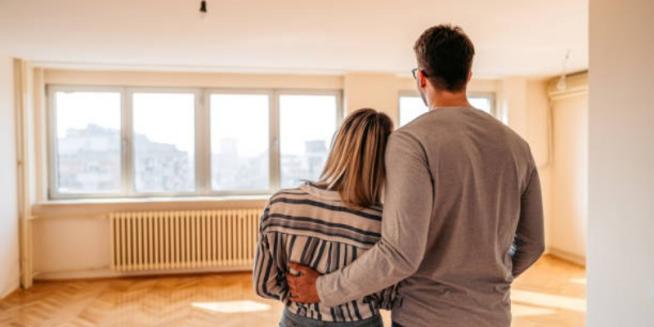Hidden Costs of Renting No One Talks About
Let me tell you a story. A few years ago, I moved into my first apartment. I thought I was prepared—I saved for rent, budgeted for groceries, and even bought a fancy coffee machine to make my mornings cheaper. But within weeks, I realized I’d missed so many costs. A broken faucet cost me $80 because my landlord said it was my fault. My electricity bill tripled in winter. And don’t get me started on the “admin fee” my leasing office charged me for… well, existing. Renting isn’t just about monthly payments. It’s a maze of hidden costs no one warns you about. Let’s break them down.
1. Agency Fees: The Price of Just Existing
When I signed my lease, the leasing agent handed me a bill for $200 called an “application fee.” I didn’t argue—after all, rules are rules. Later, I found out some agencies charge fees just to process your application, show you units, or renew your lease. These fees can range from $50 to $500, depending on where you live. Even worse, some landlords add “admin fees” for things like key replacements or lease signings. It feels like paying to breathe.

2. Security Deposits: The Money You Might Never See Again
Most renters know about security deposits. What they don’t tell you? These deposits often come with sneaky rules. For example, my last landlord deducted $300 from my deposit because I left a single nail hole in the wall. Others charge “cleaning fees” even if you scrub the place spotless. Some states cap how much landlords can charge, but many don’t. And if you move out before your lease ends? That deposit might vanish faster than your last slice of pizza.
3. Maintenance Costs: When “Free Repairs” Aren’t Free
Landlords are supposed to handle big repairs, right? Technically, yes. But in reality, many leases shift small costs to tenants. A leaky pipe? You might pay for a plumber if the landlord claims it’s your fault. A broken appliance? If it’s not covered under warranty, guess who’s buying a new fridge? My friend once paid $150 to fix a heater because her lease said tenants were responsible for “wear and tear” repairs. Always read the fine print.
4. Utility Bills: The Invisible Rent Increase
Renters often forget to budget for utilities. I did. My first electric bill in a poorly insulated apartment was $200—more than my grocery budget. Gas, water, trash, and internet add up too. Some landlords include utilities in rent, but many don’t. And if your unit has old windows, drafty doors, or inefficient appliances, your bills could skyrocket. Pro tip: Ask neighbors about average costs before signing a lease.
5. Renewal Fees: Paying to Stay Put
When my lease ended, my landlord asked for a $150 “renewal fee” to sign a new contract. I was furious. Turns out, this is common. Some companies charge fees to update leases, even if nothing changes. Others raise rent by 5-10% annually, citing “market rates.” If you don’t want to pay, you’ll have to move—a cost in itself.

6. Opportunity Costs: The Wealth You’re Missing
This one stung. While renting, I watched friends build equity by buying homes. Renters don’t get that benefit. Every dollar I spent on rent was gone forever, while homeowners built wealth through property value increases. Plus, homeowners can borrow against equity for emergencies or renovations. Renters? We’re just writing checks to someone else’s retirement fund.
7. Pet Fees: Furry Friends Cost More Than Food
I love my dog, but he costs a fortune. My building charges $300 annually for “pet rent,” plus a $500 deposit. Some complexes add fees per pet, restrict breeds, or charge extra for dog parks. Even if you don’t have a pet, check your lease—some buildings fine tenants if a guest’s pet visits.
8. Parking Permits: The Hidden Toll Booth
In cities, parking isn’t free. My apartment charges $100/month for a spot—$1,200 a year. Street parking? Meter fees, permits, or tickets add up. Even in suburbs, some complexes charge for garages or guest parking. If you have a car, factor this into your budget.
9. Appliances: The Things You Have to Buy
My first apartment didn’t include a washer, dryer, or microwave. I spent $800 on appliances I’d never owned before. Others pay for window AC units, ceiling fans, or even light fixtures. Always ask what’s included—and what you’ll need to supply.
10. Contents Insurance: Protecting Your Stuff (For a Price)
Most renters don’t realize they need insurance. I didn’t—until my laptop was stolen, and my landlord’s policy didn’t cover it. Renters insurance averages $15/month, but it adds up over time. Some landlords require it, too.
11. Moving Costs: The Price of Packing Up
Moving trucks, boxes, and U-Hauls cost money. Hiring movers? Double the expense. Even if you DIY, gas, tape, and pizza for friends add up. And if you break a lease early? You’ll pay penalties—or lose your deposit.

How to Avoid Hidden Costs (Without Losing Your Mind)
After years of renting, I’ve learned to ask questions. Always:
Read your lease like it’s a mystery novel (clues matter!).
Budget 10-15% extra for “surprise” costs.
Negotiate fees upfront (some landlords drop charges if you ask).
Document everything (take photos before moving in!).
Renting isn’t all bad, but it pays to be smart. Hidden costs won’t disappear, but with planning, you can keep more money in your pocket—and avoid nasty shocks.
Your Next Steps: Protect Yourself
Knowledge is power. Before signing a lease, do your homework. Talk to current tenants, inspect the unit for issues, and never skip the fine print. The more you know, the less you’ll overpay.